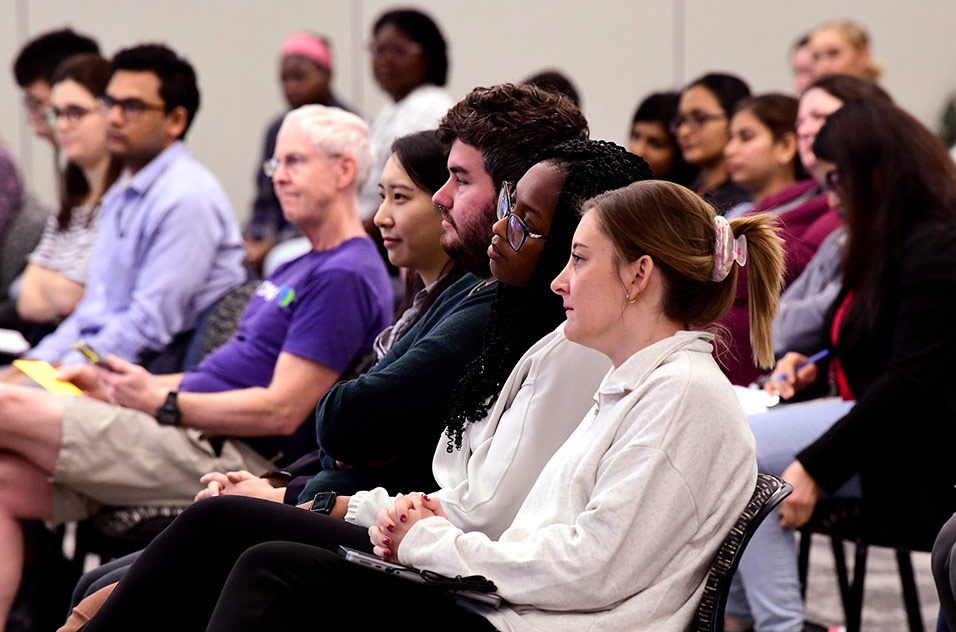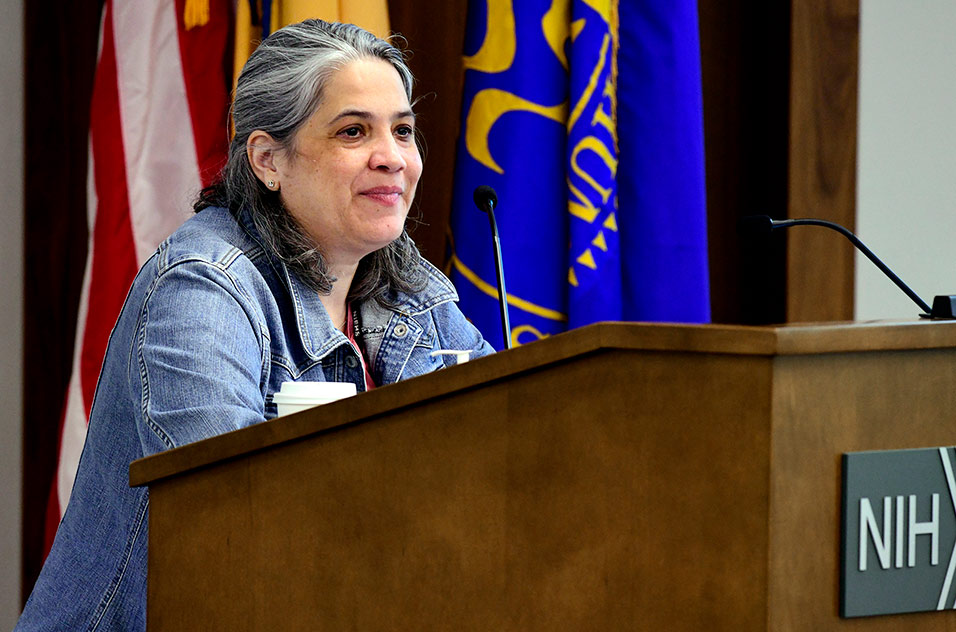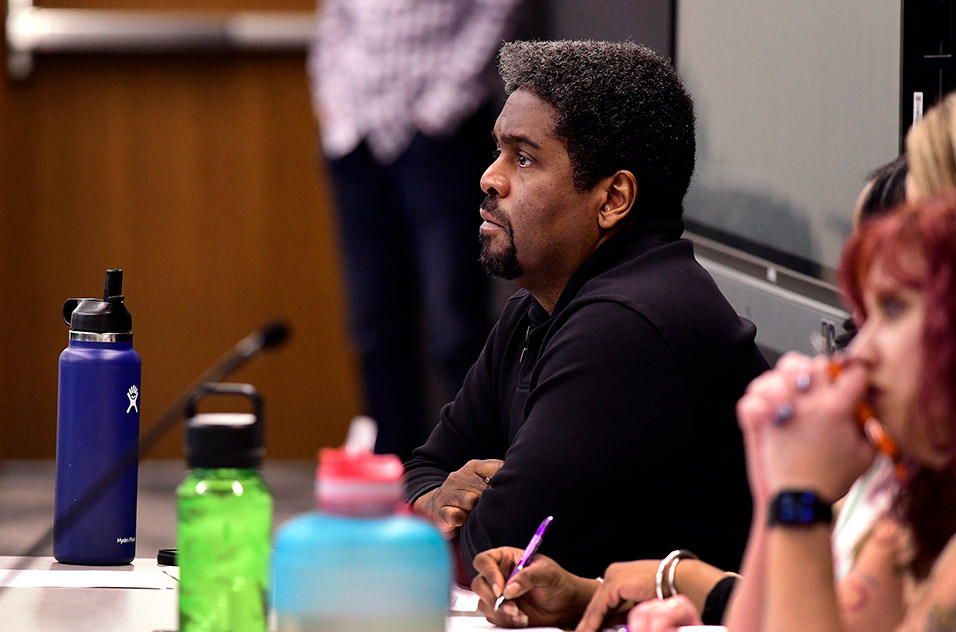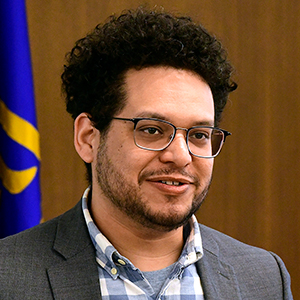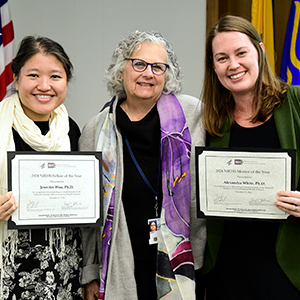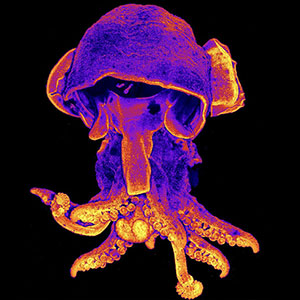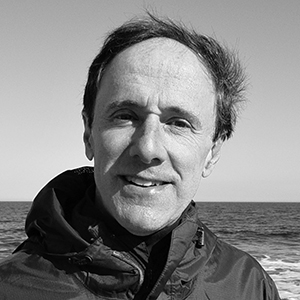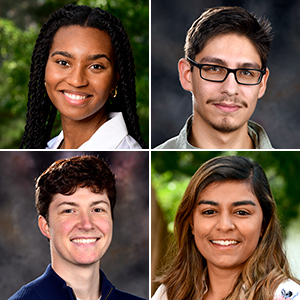The NIEHS Office of Fellows’ Career Development (OFCD) hosted its annual Three-Minute Communication Challenge March 15 with a dozen predoctoral and postdoctoral trainees across the institute vying for top honors. Participants honed their communication skills in advance of the competition, which is designed to help trainees close the knowledge gap between the scientific community and the general public.
“Communicating science to a broad audience is an absolutely essential skill to have, so we are excited to continue this challenge,” said Mercy Arana, Ph.D., who leads OFDC.
Fellows were challenged to explain in three minutes what their research entails, the broader impact of that research on science and society, and what they have personally gained from their experiences at NIEHS.
The top three presenters — Yu-Ying Chen, Ph.D., of the Reproductive & Developmental Biology Laboratory, Ginna Doss, of the Epidemiology Branch, and Uchechukwu Chimeh, of the Biostatistics & Computational Biology Branch — each won professional development awards of $1,500.
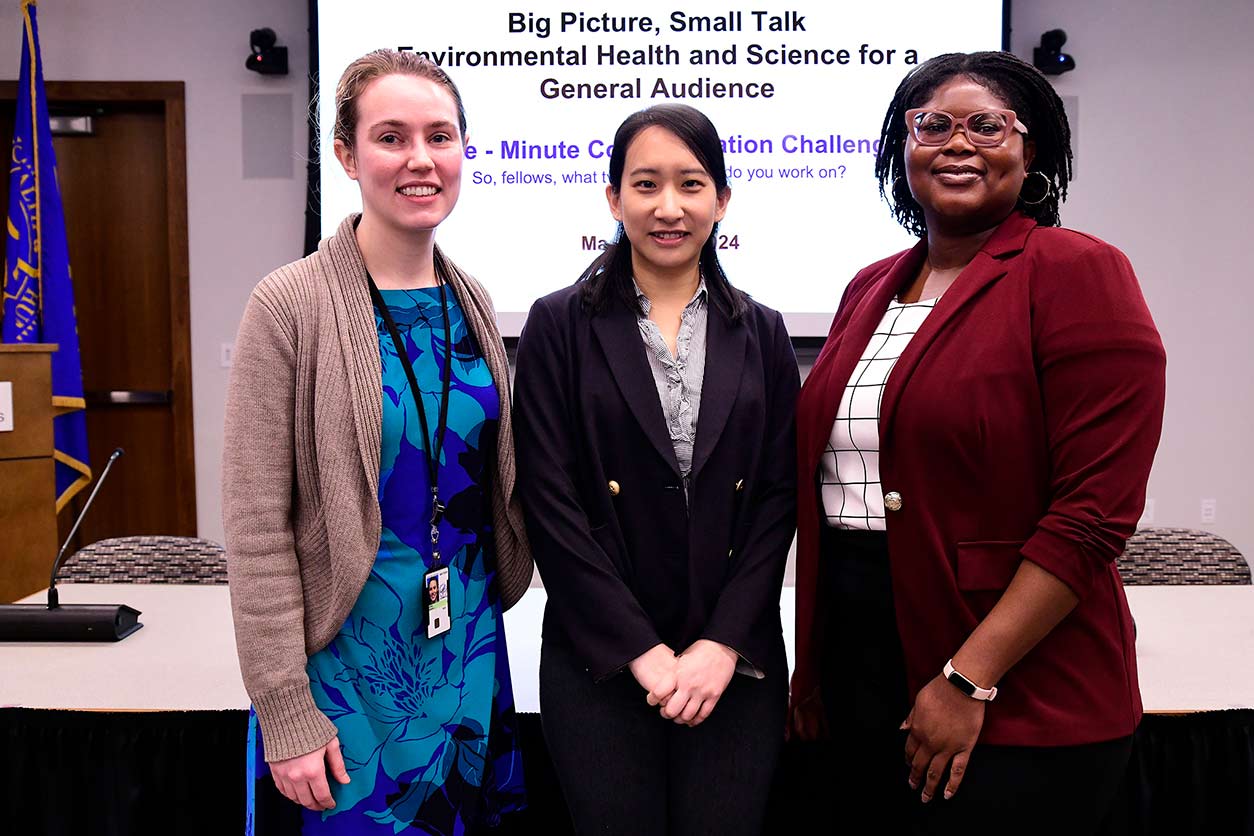
All fellows who participated in the event, their respective research branch or lab, and talk topics follow.
- Joseph Breeyear, Biostatistics and Computational Biology Branch, discussed research to prevent diabetes-related blindness.
- Yu-Ying Chen, Ph.D., Reproductive and Developmental Biology Laboratory, explained her use of single-cell RNA sequencing to identify different cell types within ovaries.
- Uchechukwu Chimeh, Biostatistics and Computational Biology Branch, explained work to uncover gene-by-environment interactions among North Carolinians.
- Luiz Paulo de Aguiar Marciano, Division of Translational Toxicology (NICEATM), provided an overview of a risk assessment study capturing pesticide use in Brazil.
- Ginna Doss, Epidemiology Branch, explained her goal to develop new tools for public health researchers to correctly identify preterm birth.
- Martin Estermann, Ph.D., Reproductive and Developmental Biology Laboratory, discussed the role of cell nutrients and metabolism in determining sex.
- Erin McNell, Epidemiology Branch, shared her dissertation research focused on prenatal exposure to phthalates, which are endocrine-disrupting chemicals found in plastics.
- Masahiro Nishimura, Ph.D., Epigenetics and Stem Cell Biology Laboratory, explained research to understand how cells are reorganized in response to environmental stimuli.
- Opal Patel, Epidemiology Branch, discussed research to understand health outcomes associated with exposure to chemicals following the Deepwater Horizon oil spill.
- Siddharth Rawat, Ph.D., Biostatistics and Computational Biology Branch, shared research to understand how climate change and temperature affect risk of preterm birth.
- Preston Siegler, Neurobiology Laboratory, discussed her project to understand how stress during prenatal development affects the brain and related social behaviors.
- Puja Sohal, Ph.D., Immunity, Inflammation & Disease Laboratory, shared research to uncover that a gene called GLIS3 regulates inflammation and scarring in kidney disease.
The Postbac Communication Challenge will be held April 10 at 2 p.m. For more information, about career development opportunities offered by OFCD, visit Fellows' Career Development.
(Caroline Stetler is Editor-in-Chief of the Environmental Factor, produced monthly by the NIEHS Office of Communications and Public Liaison.)





